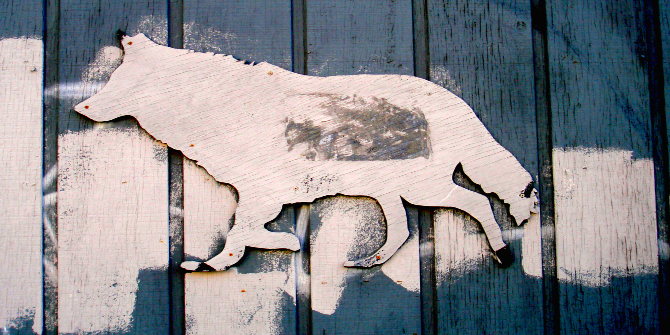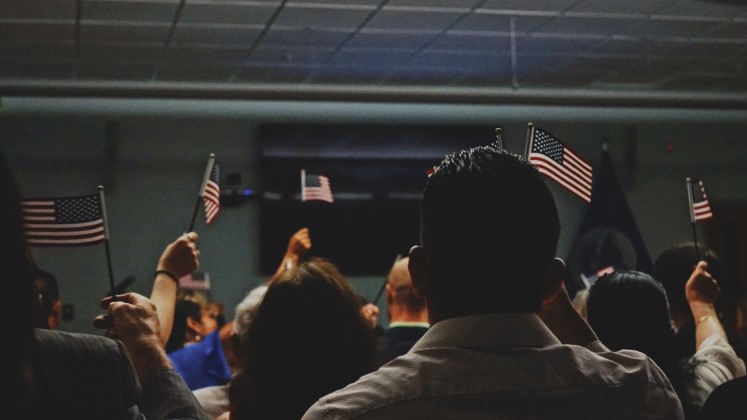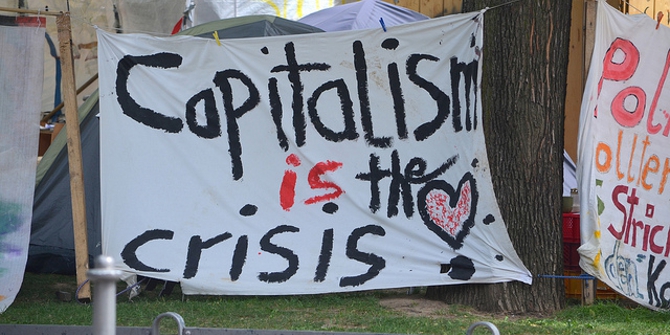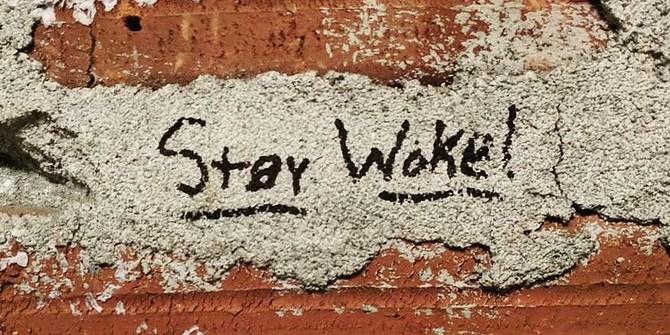
 Fueled by the racist rhetoric of now former President Donald Trump and other senior politicians, the COVID-19 pandemic saw a rise in verbal and physical violence against people of East Asian ethnicities both on and offline. In new research Jeehyun Jenny Lee and Jin Lee look at how Asian women used the #StopAsianHate hashtag on TikTok to narrate and spread counter discourses and form an ad hoc community for pan-Asian solidarity in the face of anti-Asian racism.
Fueled by the racist rhetoric of now former President Donald Trump and other senior politicians, the COVID-19 pandemic saw a rise in verbal and physical violence against people of East Asian ethnicities both on and offline. In new research Jeehyun Jenny Lee and Jin Lee look at how Asian women used the #StopAsianHate hashtag on TikTok to narrate and spread counter discourses and form an ad hoc community for pan-Asian solidarity in the face of anti-Asian racism.
In recent years, TikTok, the short-form video service, has become a budding space for political participation and activism online, including the #BlackLivesMatter movement, young adults’ global climate activism, and teens’ networked action against former US president Donald Trump. The platform’s features including AI-powered filters, meme templates, and audiovisual mechanisms (e.g., trending music, users’ voice), to name a few, have enabled diverse and creative engagement with social issues and politics. In new research, we found that Asian creators, and in particular Asian women, have turned to TikTok as a platform to raise awareness of anti-Asian racism during the COVID-19 pandemic.
#StopAsianHate hashtag on TikTok and Asian women
Asian women have been historically stereotyped as either the apolitical, quiet minority or as the exotic, lotus blossoms in American popular culture like films, novels, and television shows. However, contrary to these pernicious stereotypes, Asian American women have long participated in offline and online modes of activism and collective organizing to counter the rampant racialization, hypersexualization, and discrimination of Asian women in the US and form communities of resistance.
This was also the case during the COVID-19 pandemic when the rise in verbal and physical violence against people of East Asian ethnicities in the US in association with the “Covid-19 as Chinese virus” discourse sparked the #StopAsianHate movement across social media platforms including TikTok. From renowned Asian American women media personalities to many everyday users, Asian women participated in the #StopAsianHate hashtag to discuss the racialized motive behind the violence and to center their experiences, feelings, and opinions about anti-Asian racism by drawing on the unique features and cultures of TikTok.
In particular, highlighting the Atlanta Shooting on March 16, 2021, in which a white man, who was a self-reported sex addict, killed eight people, including six Asian women, in three saunas, Asian women extended the #StopAsianHate hashtag by sharing and tagging their experiences of racism and sexism as “gendered-and-raced beings” in the US.
Spreading counter-discourses
Our analysis of 130 #StopAsianHate videos by Asian and Asian American women showed how these creators used the #StopAsianHate hashtag to discuss diverse topics in relation to anti-Asian racism, including histories and present-day manifestations of Asian fetishization, Asian identity, and micro-aggression. By tagging and sharing these different topics to the #StopAsianHate hashtag, creators virtually created space to express and share counter-discourses about Asian women’s experiences in the US at a time when their physical presence was being policed by racist people in society. We also found that Asian women creators would link their #StopAsianHate videos to other hashtags such as #mixedraceAsian and #Asianfetish to expand beyond the East Asian-centered focus of the movement to include the racialized and gendered experiences of Asian women across different identities.
Asian women creatively employed TikTok features such as video editing functions and meme templates to narrate counter-discourses. For instance, one of the common ways in which Asian women would participate in the #StopAsianHate movement was to create short narrative videos, in which they would directly stare at the camera with a fixed gaze, address the viewers, and vocalize their opinions of anti-Asian racism through intersectional frameworks.
Asian women also made use of the platform’s more popular genre, including content presented as skits and parodies, by using trending audio memes such as the “magic bomb dance,” which was a trending sound on TikTok used by creators to answer questions “Things I have been asked an Asian woman,” accompanied by a dance. By outlining the most common questions they have received as an Asian woman, such as “where are you from from?,” Asian American women filmed themselves answering the questions with frustration, feelings that were reciprocated among many Asian women TikTokers who have had been asked the same set of questions in their everyday lives.
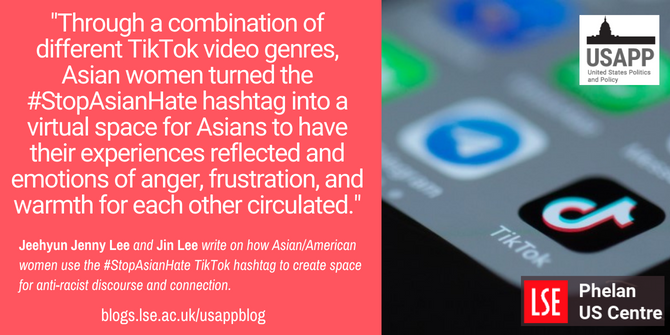
Photo by Solen Feyissa on Unsplash
Through a combination of different TikTok video genres, Asian women turned the #StopAsianHate hashtag into a virtual space for Asians to have their experiences reflected and emotions of anger, frustration, and warmth for each other circulated. These are their anti-racist space-making practices on TikTok which make space for counter-discourses and feelings of connections with other Asian TikTok users and community members.
Forming an ad hoc community for pan-Asian solidarity
The shared stories and voices of Asian women archived under the #StopAsianHate hashtag facilitated and carved out space for community building among Asian women TikTok users. By calling out racists and showing mutual support through TikTok videos and comments, they created a virtual community where they felt connected to each other through the shared experience of being “Asian.” As one Asian TikTok creator in our study illustrates in her content on how to say “I love you” in different Asian languages, both influencers and their followers build pan-Asian solidarity by showing affection and care for each other as Asians who are impacted by the racialization of COVID-19 disease.
However, the community built in the hashtag space is not permanent and functions on an ad hoc basis in response to TikTok’s viral trends. A sense of community may last only for the short duration of the video and likely vanish after that since TikTok constantly feeds users new content after a video unless you log off from the app.
Also, the virality-centered algorithm reshapes the dynamics of social movements by attracting people to easily bandwagon the “trending” social messages. For influencers and internet celebrities who seek opportunities for more visibility and fame, the trending hashtags like #StopAsianHate can be a ticket to go viral on the platform. This can shrink the political potential of the hashtag space that many participants have carved out with their voices, and further engender the decontextualization of the long-standing Asian Americans’ advocacy for racial equality.
While the #StopAsianhate movement has waned, it continues to be used as a placeholder to archive different stories of ani-Asian racism on TikTok. Beyond the #StopAsianHate hashtag, many Asian women creators continue to create content on racism through different hashtags and topics affecting communities within and beyond Asian Americans, making critical social commentary videos as a growing part of TikTok culture. We, and all those who are beneficiaries of Asian women creators’ anti-racist discourse and contribution to online spaces, need to think of ways to support their work in our everyday engagement with digital culture, as racial justice digital work often involves great emotional labor and comes with increased harassment by racist users.
- This article is based on the paper, ‘#StopAsianHate on TikTok: Asian/American Women’s Space-Making for Spearheading Counter-Narratives and Forming an Ad Hoc Asian Community’, in Social Media + Society.
- Please read our comments policy before commenting.
- Note: This article gives the views of the author, and not the position of USAPP – American Politics and Policy, nor the London School of Economics.
- Shortened URL for this post: https://bit.ly/45XCOsz


